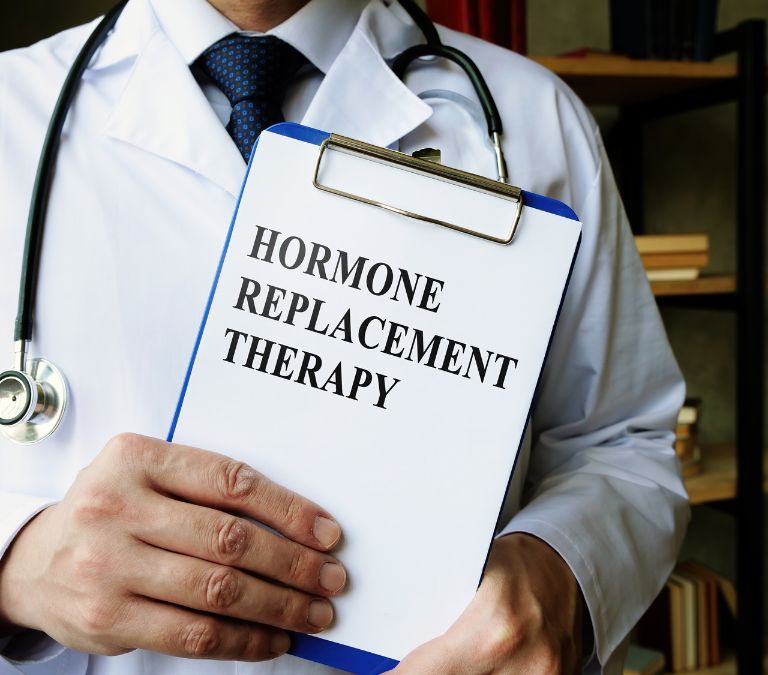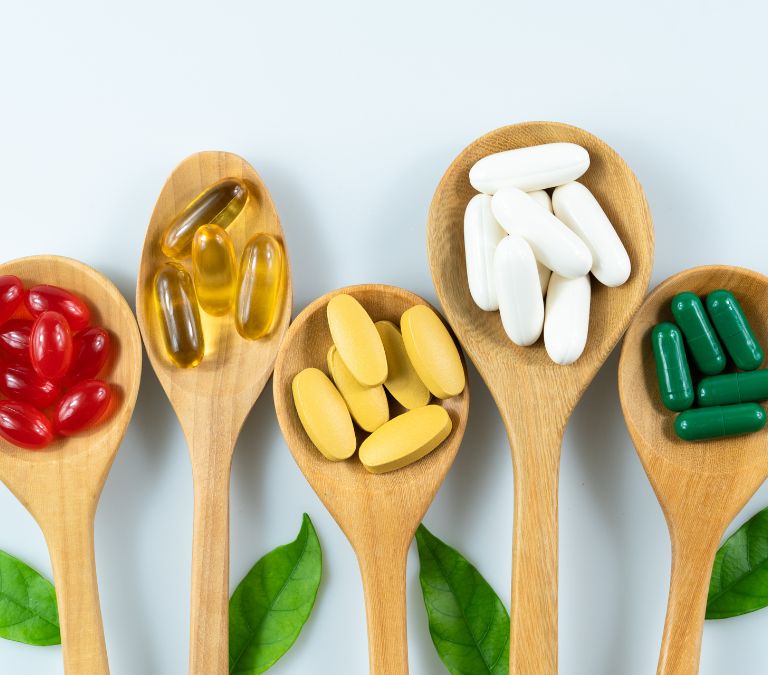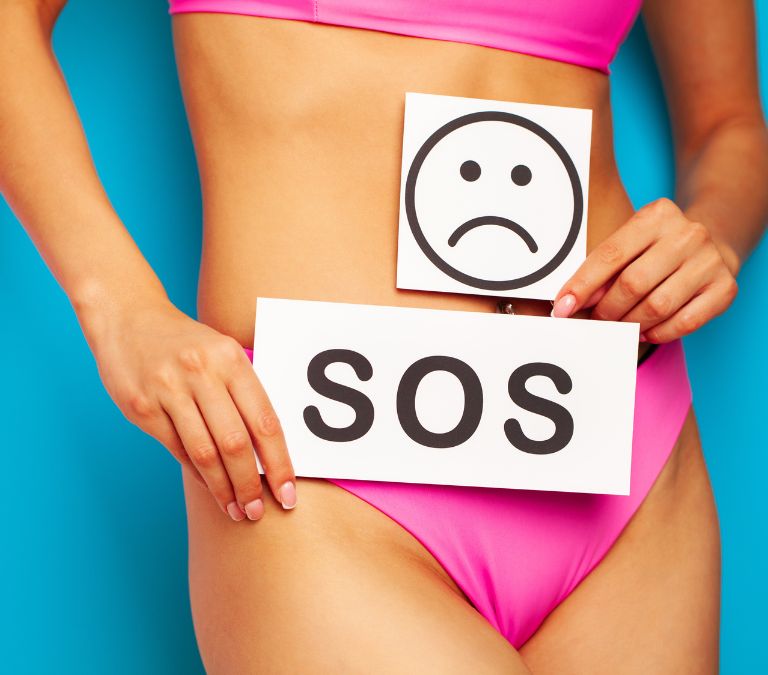Vaginal dryness is a widespread symptom of menopause. During menopause, a whole lot of the body is affected. The body goes through many complications that provide the average menopausal woman with utmost discomfort. Speaking of complications, let’s think of the hot flashes, the night sweats, and the inability to sleep.
All these problems are usually triggered by menopause, which is why many women today see menopause as more of an illness than a natural transition. The sex life is also disrupted through vaginal dryness. When you are dry down there, you might begin to lose interest in anything relating to sex and intimacy; you don’t want that, trust me.
Normally, the vaginal walls are always lubricated by a layer of clear fluid. The hormone estrogen influences this natural lubrication. While estrogen influences the appearance of secondary sexual characteristics in women, it also helps maintain the fluid that keeps the vagina lubricated. Therefore, when the estrogen level declines, the moisture content in the vagina also declines. At this point, the vagina becomes dry, and intercourse becomes painful. It may seem like a minor irritation, but believe me when I say a dry vagina is sometimes equivalent to a migraine. Yes, I said that.
Perimenopause and Post Menopause: What they Are and How They Can Influence Vaginal Dryness

Perimenopause is the period leading to menopause. This phase introduces a woman to menopause. During perimenopause, the body begins to go through rapid changes. At this phase, the woman might experience symptoms of varying severity, from the characteristic hot flashes to the discomforting night sweats and, sometimes, the frustrating vaginal dryness. Because the woman is being introduced to menopause, perimenopause is the phase of menopause where a woman goes through some of the worst symptoms.
Before a woman can be confirmed to have gotten to menopause, she must have gone through 12 consecutive months of zero periods. It is the first symptom; distortion in the menstruation pattern cycle. As time progresses, other symptoms begin to become evident. In one way or the other, all of these symptoms are caused by fluctuations in hormones.
When important hormones like estrogen and progesterone begin to decline, the body undergoes damning complications. Immediately you have gone through a full year of non-existent periods. You are out of perimenopause and officially in menopause.
Postmenopause, on the other hand, comes just after menopause. Let’s put it this way; perimenopause happens before menopause, and Postmenopause happens after menopause. At the stage of Postmenopause, the body is somewhat stable, and the menopausal symptoms are now mild. However, some women experience severe menopausal symptoms for several years, even after undergoing Postmenopause. Once you’ve got here, you will remain here for the rest of your life. It’s not scary. It’s natural, and every woman on earth must pass through it.
Generally, perimenopausal women go through more severe symptoms than postmenopausal symptoms. However, remember that different women have different reactions to menopause, and the severity and longevity of symptoms can vary.
Vaginal dryness during menopause is caused chiefly by changes in the production of hormones in the body. With this, the vaginal walls become thin, the vaginal secretions lessen, moisture declines, and vaginal dryness becomes imminent.
How Menopause Causes Hormonal Fluctuations
Fluctuations in levels of hormones remain the main cause of vaginal dryness, especially in menopausal women. But how does menopause cause changes in the estrogen hormone levels in the body?
During menopause, your ovaries become incapable of producing eggs. However, keep in mind that the ovaries contain some follicles, which aid the eggs in the secretion of progesterone and estrogen. As the eggs lose their egg-releasing ability, the follicles die, and the production of these vital hormones ceases in this region. At this stage, the body becomes deficient in estrogen and progesterone, and menopausal symptoms, particularly vaginal dryness, appear.
Other Causes of Vaginal Dryness
As stated earlier, a drop in estrogen levels will cause vaginal dryness. However, while estrogen decline remains the primary cause of vaginal dryness in menopausal women, other factors can also trigger it. They include:
Depression

While this may sound funny and unbelievable, it is, in fact, very true. In Montgomery, Alabama, Noelle, a woman in her mid-ages, also a full-time lawyer, was helping her 5-year-old son go through a difficult stage. Her son, Max, had a severe accident in school, and it landed him in the ER. The process of recovery lasted about 8 months. During the 8 months, Noelle wasn’t experiencing pain and dryness below, and she began to lose interest in anything relating to sexual pleasure.
After full recovery, she noticed how things suddenly changed for her. The dryness, pains, and discomforts lessened, and she was able to get sexual satisfaction again. Emotional and psychological entities like depression, anxiety, and mental stress, according to research, can cause vaginal dryness. It is because anxiety causes insufficient blood flow to the body. With this, the vagina does not get enough moisture, which will lead to dryness.
Immune System Disorders
Sjogren syndrome is when the body’s immune system attacks fluid-secreting glands like saliva and tears. Women are the most affected by this syndrome, and most women living with it tend to complain of vaginal dryness.
Surgical Removal of the Ovaries
Sometimes, women opt for the removal of the ovaries. Sometimes, the ovaries have to be removed to solve a health crisis. But, whatever the cause, the removal of the ovaries can cause dryness in the vaginal.
Radiotherapy and Chemotherapy
Cancer treatments like radiotherapy and chemotherapy can mess up reproductive health. In addition, cancers like bowel cancer tend to cause many women today to become infertile. It can be attributed to the high proximity in distance between the reproductive system and the bowel. With this, any small tampering with the region will cause induced menopause. Menopause is the leading cause of vaginal dryness.
Remedies for Vaginal Dryness during and after Menopause
The most common treatment option for vaginal dryness during menopause is HRT.
Hormone Replacement Therapy

This treatment option involves a process of relieving symptoms of menopause by simply replacing hormones that are at lower levels. HRT is typically taken to reduce the effects of menopausal symptoms on women going through menopause. HRT helps replace hormones that have become low as a result of menopause.
There tends to be some hormonal balance in the body with this. The fluctuations of vital hormones in the body of menopausal women are the main reasons for so many uncomfortable menopausal symptoms. With HRT, symptoms like hot flashes, night sweats, reduced sex drive, vaginal dryness, and mood swings can be relieved. HRT can also help with osteoporosis problems, which are very common in the postmenopausal phase of life.
HRT is very beneficial to menopausal women. Living with menopause can sometimes be difficult, but you could go through a smooth menopausal transition without experiencing complications with this treatment option.
Another very common remedy for vagina dryness is lubricants and vaginal moisturizers. Lubricants are very popular and are better than HRT when you are not ready to bear the risks involved with HRT. Yes, HRT has its risks. While the benefits of Hormone Replacement Therapy are known to outweigh the risks, HRT can cause problems as severe as cancer, heart diseases, blood clots, and stroke. Before they uncovered the risks of HRT, many women took this treatment option to alleviate the problems of menopausal symptoms. However, the number of women taking HRT has significantly dropped since researchers linked it to breast cancer.
Generally, there are two types of Hormone Replacement Therapy. They include estrogen-only HRT and combination HRT. While the former contains the estrogen and progesterone hormone, the latter contains only estrogen.
Estrogen-only HRT will only increase your risks of developing breast cancer when used for as much as 10 years. On the other hand, combination HRT can increase your risk of developing cancer by as much as 75%. The risks still stand even if this HRT is used for a short time. Also, there is a high chance that combination HRT will increase the likelihood of breast cancer being diagnosed at an advanced stage. It also increases the likelihood of death from breast cancer.
Hormone Replacement Therapy is very beneficial in helping to cure vaginal dryness. Still, it can be lethal when its connection to breast cancer is analyzed.
Use of Lubricants
Due to its simplicity and availability, many women suffering from vaginal dryness have taken lubricant and moisturizers as their preferred remedy. Lubricants will help ease some discomforts of vaginal dryness. It is done simply by increasing the moisture content in the vagina. It is important to know, however, that vaginal lubricants do not, in any way, treat the underlying problem of vagina dryness, which is a low level of estrogen. What it does is that it simply prevents the vagina from getting dried by the addition of moisture.
Types of Lubricants
For alleviating vaginal dryness, there are three types of lubricants. They include:
Water-based Lubricant
In very simple terms, water-based lubes are lubricants soluble in water. You can take them off when placed on the hand by simply placing them under running water. Water-based lubricants are simple and are often regarded as the cleanest lubricant. Unlike other lubricants like oil-based lubricants, water doesn’t stain sheets. It gives water-based lubricants an edge over other forms of lubricants. They are less messy, leave less residue, and are not reactive to users with sensitive skins. As a result, there are more natural when compared to other forms of lubricants. They are also made up of fewer chemicals. Here’s one more thing: the water-based lubricant doesn’t evaporate easily.
Oil-based Lubricant
This lube provides a slippery sensation and can last for a longer period. Unlike water-based lubes, oil-based lubricants tend to stain fabrics, which can be difficult to eliminate. It is advisable not to try this lubricant with condoms because it could break the latex and render the condom useless. Also, people prone to yeast infection should not use oil-based lubricants.
Silicone-based Lubricant
This lube is the most suitable for people with very sensitive skin. It is because SB lubes are hypoallergenic, so they are unlikely to cause an allergic reaction. Silicone-based lubricants are long-lasting; just like oil-based lubricants, they stain sheets. This lubricant is suitable for condoms but isn’t suitable for use with sex toys. SB lubes can degrade sex toys with time. Due to its long-lasting property, silicone-based lubricants are often more difficult to clean than other lubricants. Research conducted in 2016 saw that silicone-based lubes are better off than water-based lubes in reducing sexual discomfort. It gives silicone-based lubricants an edge over other types of lubricants.
Best Lubricant for Menopause Dryness
Now we know the types of lubricants available today. But what lubricants are best for vaginal dryness caused solely by menopause? While lubricants are generally used for moisturizing the vagina to ease the pain of intercourse, some lubricants are better off being avoided by menopause, while others are to be embraced.
Some of the best lubricants available for menopause dryness include:
LOLA Personal Lubricant
This hypoallergenic but water-based lubricant is made with natural ingredients. According to the company, this lubricant doesn’t contain any trace of glycerin, flavors, colors, parabens, or fragrances. The formula used in manufacturing is pH-balanced and good for vaginal health. The bottle holds a one-handed pump that makes application easier and reduces mess during application. If you are someone who fancies simplicity, then the LOLA personal lubricant is an excellent choice for you.
Geneva Intimate Moisture
This all-in-one water-based lubricant is made specifically for menopause dryness. According to the manufacturer, Geneva intimate moisture doesn’t contain any trace of flavors, fragrances, hormones, and parabens. In addition, the formula used is pH-balanced, which is good for vaginal health.
Pink Silicone Lubricant
The Pink Silicone Lubricant is silicone-based and hypoallergenic. This lubricant is safe for condoms and sex toys and free from parabens and glycerin. This lube’s major advantage over other lubes is its restorative and healing properties. Aloe vera influences these properties and the vitamin E it contains.
Sliquid Organics Natural Gel
This thick, non-toxic, vegan-friendly, hypoallergenic, gluten parabens and sulfates-free organic aloe Vera-based lubricant is an important lube used by many menopausal women today. Although similar to silicone-based lubricants, the Sliquid organics natural gel is made from recyclable packaging and is 100% natural.
Foria Wellness Intimacy Sex Oil with CBD
It is an oil-based lubricant. This lube is different from others because it possesses broad-spectrum cannabidiol (CBD). CBD helps in increasing blood flow to the vaginal. It also helps in relaxing the muscles and in promoting very comfortable sex. In addition, this lubricant is free from alcohol, glycerin, parabens, petroleum ingredients, and artificial flavors and colors.
Astroglide X Silicone Gel
As the name implies, this is a silicone-based lubricant. It doesn’t contain any glycerin or parabens and is generally hypoallergenic. It is long-lasting, mess-free, and safe to use with latex, polyisoprene, and polyurethane condoms. Together with silicone, the Astroglide X Silicone Gel also contains coconut oil.
5 Vitamins that Will Help with Vaginal Dryness during Menopause
While vaginal dryness can happen to any woman, it is usually prevalent for those going through menopause. Research has shown that about 33% of menopausal women are bound to experience vaginal dryness. While lubricants have proven to help solve this problem, various vitamins have also been made available to help enhance lubrication and prevent vaginal dryness. Some of these vitamins include:

Vitamin D
Vitamin D can be produced in the skin cells on exposure to the sun. Vitamin D is often referred to as the sunshine vitamin and is known for promoting good bone health. As an added advantage, the sunshine vitamin can also help increase the moisture content of the female vaginal. Research has proven that vitamin D supplements could help reduce dryness and improve the vagina health of many women during menopause. If taken daily for 8 weeks, vitamin D can significantly decrease vagina dryness.
Vitamin E
It is a fat-soluble vitamin known to be a disease-fighting antioxidant. A study conducted on 52 women showed that daily administration of vitamin E supplements for 12 weeks could help reduce the thinning and drying of the vaginal walls.
Vitamin A
Not only is vitamin A important for the eye, but it is also very useful in developing the mucous membrane of the vagina. When it comes to the production of collagen and moisture, vitamin A is no stranger to helping the body. For this reason, menopausal women should take vitamin A supplements, as it will help them tackle the problem of vaginal dryness.
Vitamin B
As stated earlier in this article, immune function can influence dryness below. On the other hand, vitamin B is known to help in boosting the general function of the immune system. Therefore, taking more vitamin B complex is advisable to get optimal results.
Beta-carotene
This provitamin helps the body make other vitamins; for example, vitamin A. beta-carotene is found in dark-green leafy veggies, carrots, and sweet potatoes. This provitamin can produce excellent results when taken in the right dose.
Other Remedies for Vaginal Dryness
- · Omega-3 fatty acids
- · DHEA treatment
- · HRT
- · Hyaluronic acid
When to Speak to a Doctor
So many women are indeed embarrassed when matters about vaginal dryness are brought up. With this, they tend to shy away from informing a doctor about it. However, it is good you know that vaginal dryness caused by menopause is very normal. There are more people like you than you think.
Vaginal dryness could be very difficult to go through. From the pain to the irritation to the discomfort, everything about vaginal dryness screams bad. You should see a doctor immediately. Things begin to get unbearable. When you see a doctor, you are likely to be informed of the exact cause of your vaginal dryness and the best solution that fits your body.
So many women today are indecisive on the whole concept of menopause. Is it a good thing? Is it not? While menopause comes with age, it is important to know that aging is good. Unfortunately, not everyone gets the opportunity to thrive on earth for many years. However, this indecisiveness is not surprising, owing to the symptoms that come with it; from vaginal dryness to night sweats, reduced sex drive to hot flashes, the period of menopause can sometimes be tough to cope with.
Menopause is not an illness. It is a natural transition that every woman has to go through. For this reason, we should be very conscious and enlightened about any little changes in the body, especially when it pertains to our sexual and reproductive health. So many women suffer from vaginal dryness without knowing there is a remedy. It is important that, as women, we shouldn’t be ashamed of seeing the doctor when menopause comes knocking at the door.
Menopause doesn’t change who you are, but you can change the effect menopause has on you.







